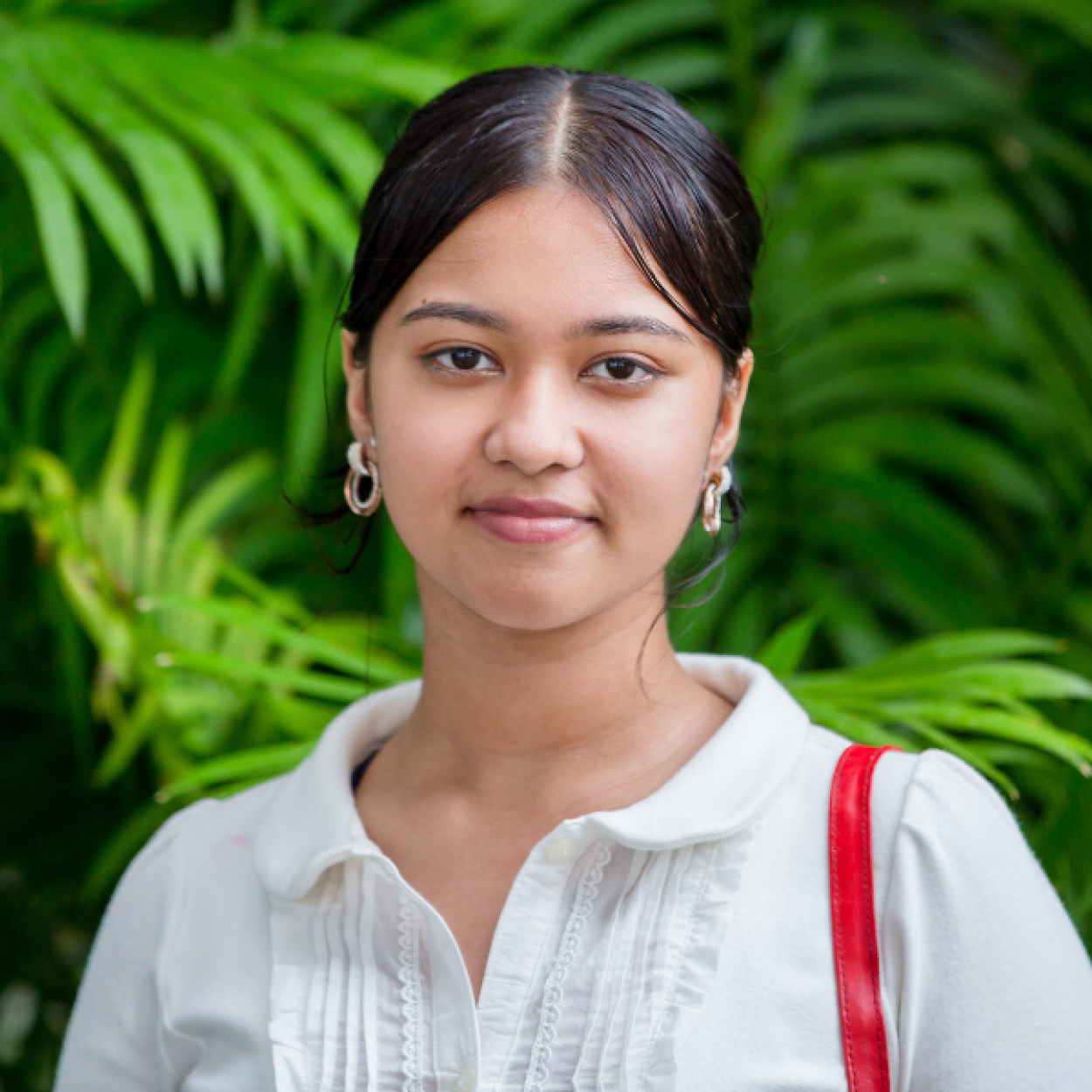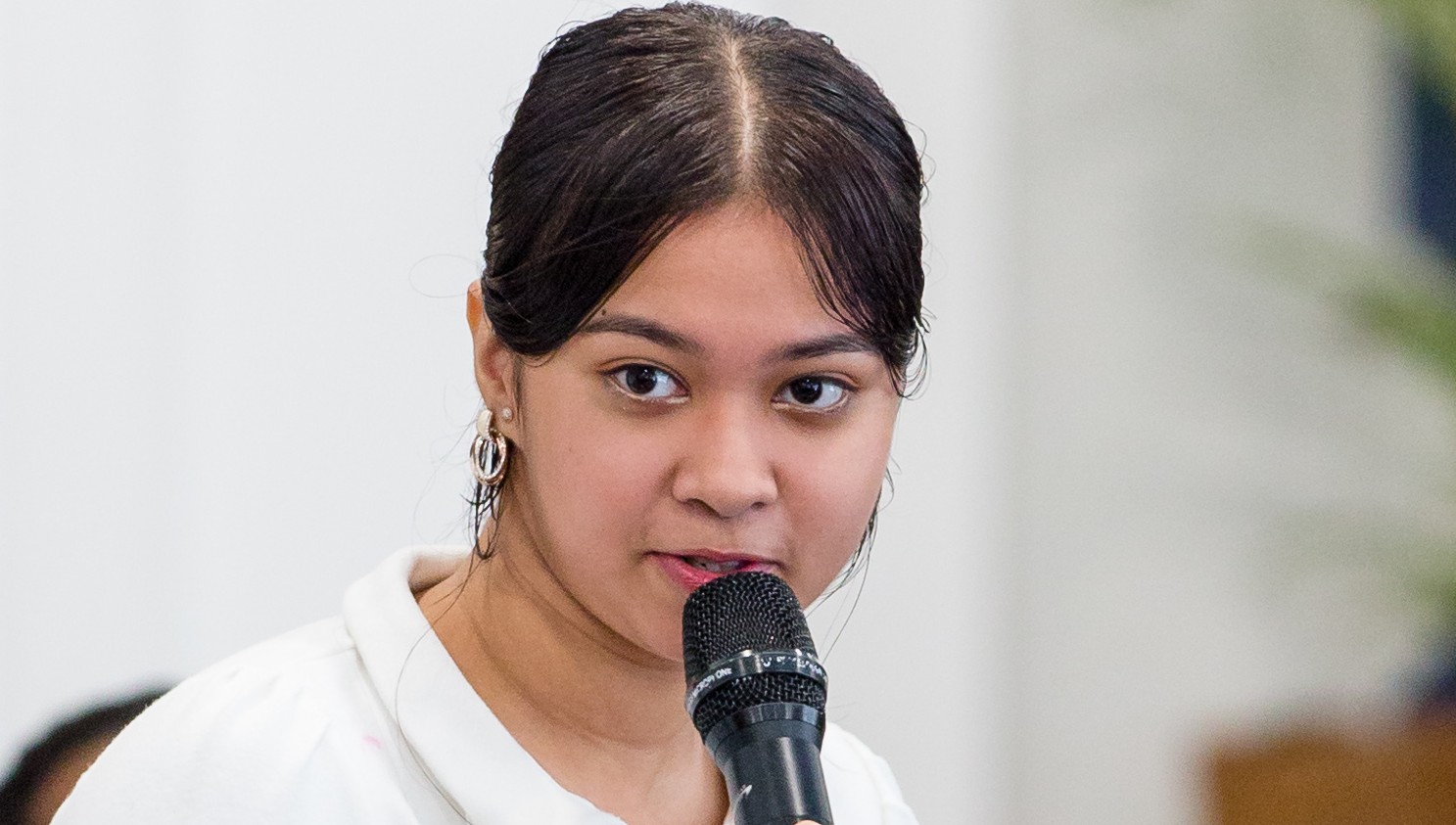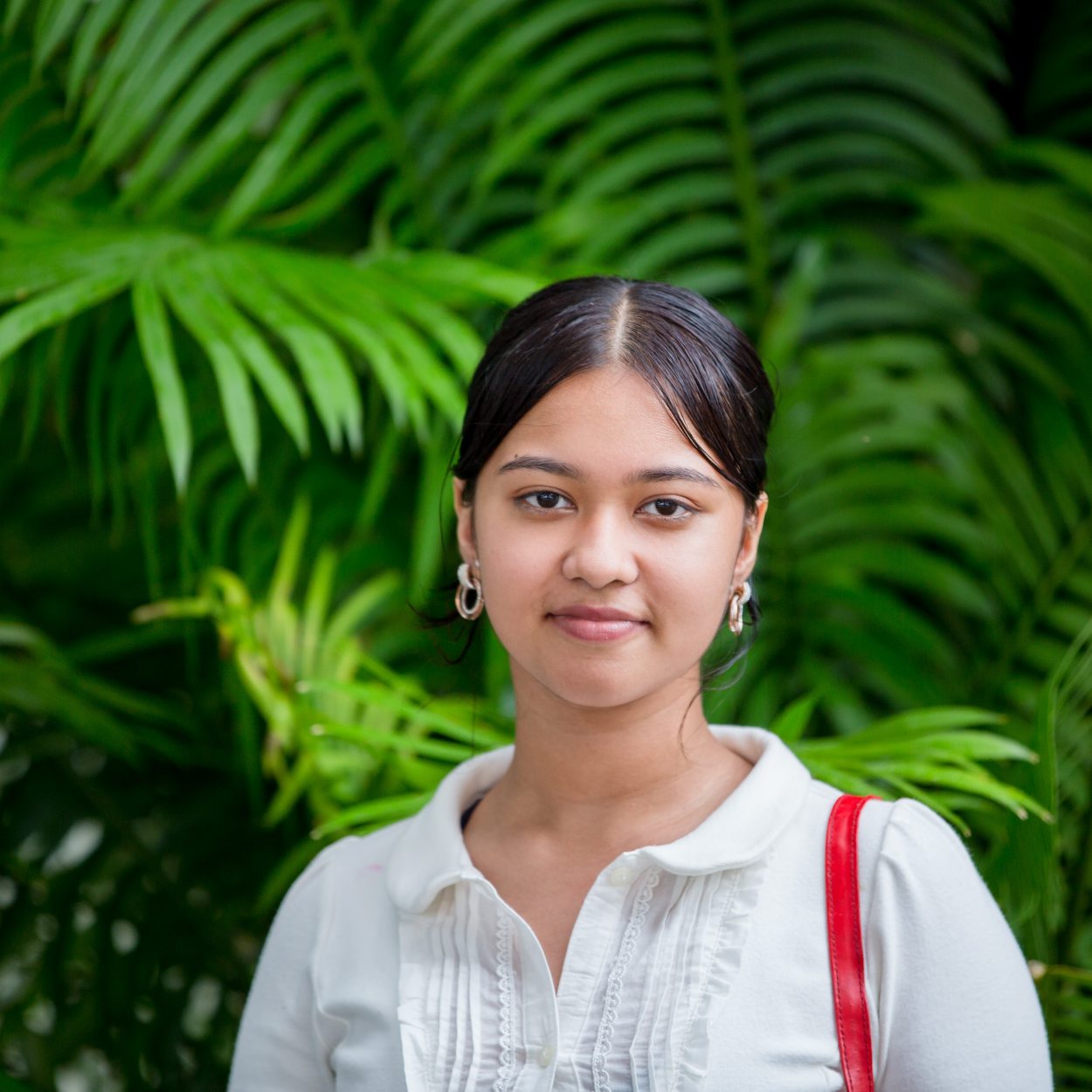
Speaking up for girls and young people in the Pacific
To celebrate the International Day of the Girl Child today, we want to introduce you to Shruti Singh, a young advocate from Fiji. Shruti came to advocacy through IWDA partner, Fiji Women’s Rights Movement’s GIRLS program.
The GIRLS program works with girls between 10-17 years old to give them the tools they need to become agents of positive change, so that they can advance girls’ human rights. The curriculum uses storytelling, dance and drama to build the girls’ personal understanding and acceptance of their rights and share their stories.
Shruti joined the program when she was 10 and is now an Assistant Coordinator for FWRM’s Young Feminist Network, and Deputy Head Girl at her school. This year, she was chosen from hundreds of applicants to represent Fiji on the global stage as a CSW68 Youth NGO Fellow, as part of the UN’s Commission on the Status of Women.
Despite all that she has accomplished at an early age, Shruti says she was surprised when she was accepted into the global cohort of young leaders.
“I honestly wasn’t expecting to get into the network,” she says. “I just wanted to apply for it and see how it goes. And when I really got in, I was really excited!”
Shruti was the youngest member of this year’s cohort and enjoyed the opportunity to connect with like-minded women from all over the world, some of whom have a lot of experience in advocacy.
“I got to learn a lot through my other colleagues and other members who came from different backgrounds and just had different experiences. So just a beautiful learning experience for me.”
Together with other members of the cohort, Shruti helped run a communications campaign to raise awareness of the most pressing issues facing girls and young women.
As part of the fellowship, she also contributed to Youth Stories of Change, a collection of “Inspiring anecdotes of youth changemakers around the world.”
Her contribution to Youth Stories of Change is a poem calling on young people to come together to fight climate change, and on older generations to listen.
“Being in a small country like Fiji, you experience things firsthand like cyclones and these different natural disasters that just happen,” she says.
“I took the entire perspective of Pacific Islanders, and the major thing they’re facing right now is climate change.”
“I just started writing out what I really felt. And, you know, as youths, it’s basically just important to be really aware of what is going on around you and how you can actually communicate yourself to other people.”

How Shruti got started in advocacy
Speaking to Shruti, it’s clear how much she values communication skills as an advocacy tool, and she credits FWRM with helping her build up these skills and teaching her about gender equality through the GIRLS program.
The program enables girls aged between 10-17 years of age to learn and advocate for their rights.
When she first joined the program at 10 years old, it was a completely new experience for her.
“At first I was really excited to just step out of the school and be part of something else other than any study group,” she says.
Shruti continued with the GIRLS program for the next four years and developed an appreciation for the community FWRM was building as well as the skills that she was learning there. Through theatre activities, games and sports, FWRM created a space that young girls wanted to be in.
“It really helped us connect with each other and as time progressed, I started to realise that I really enjoy the company of my fellow girls and coming to the organisation and getting to learn something new.”
The GIRLS program was a place where Shruti and her peers could talk about things that they might not learn about in their regular classes.
“We got through many information sessions where we talked about discrimination and gender equality and we got to the roots of things.”
“They let us broaden our information and that’s when they slowly started to develop us into critical thinking so we could start deciding what field that we really want to go into and what’s something we’re passionate about.”
As Shruti got older, she had more opportunities to connect with other young women, not just in Fiji but around the world. She noticed a lot of common ground when they talked about their experiences and the expectations their societies put upon them.
“When I hear these stories, that’s when I realised there are stereotypes and there is prejudice that exist even today in the 21st century.”
“I’m saying that women in our generation are working hard to achieve equal grounds with any other person, whether it be of any gender. But then the fight is still going on.”
Hopes for the future
When Shruti thinks of the future for Fiji, and the rest of the world, climate change is again at the front of her mind.
“I think people should take climate change really seriously,” she says.
“We don’t realise the amount of waste we are producing and the amount of harm we are giving to our very environment that we want to sustain.”
She also dreams of a future where every person feels respected, regardless of gender.
“It’s really important that we break out from our stereotypes we have that any other person has more power, more authority than any other person.”
“It’s basically treating everyone equally and not having that sort of barrier or sort of doubt that ohh, this person is better than me, or this person is more powerful than me. So, it’s living in a world where everyone at least in a way, has that sense of reassurance that yes, I have a right to express myself and be part of this beautiful community.”
In the next few months and years, Shruti will take the first steps to create her own career and, unsurprisingly, she has a clear idea of what she wants to do.
“I have a special place for science in my heart,” she says. “So I want to be in the medical community.”
She also wants to continue her advocacy work in an NGO.
“I’m learning and I’m just trying to balance both fields, being a medical student and being in the medical field and at the same time being an advocate as well.”

The GIRLS Program is delivered in partnership with the Australian Government through the Australian NGO Cooperation Program (ANCP).
Photography Credit: Allan Stephen (Infinity Images)